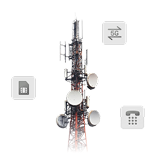
The digital transformation wave has reshaped how businesses operate, pushing organizations to rethink their integration strategies. Legacy integration platforms, once the cornerstone of enterprise connectivity, are now showing their limitations in keeping up with the demands of modern, cloud-first ecosystems. Businesses today need more than just basic connectivity – they require agile, scalable, and cost-efficient integration solutions that support real-time data exchange, hybrid cloud environments, and seamless API management.
If your organization is still relying on outdated integration tools, it’s time to consider upgrading to a modern integration platform. These next-generation solutions are designed to address the complexities of today’s digital landscape while aligning with your long-term business goals. In this blog, we’ll explore 10 compelling reasons why switching to a modern, scalable integration platform is a strategic move for your business.
- Cloud-Native Architecture
Traditional integration platforms were designed for on-premises environments, making cloud adoption a significant challenge. A modern integration platform, on the other hand, is built with cloud-native capabilities, enabling seamless hybrid and multi-cloud deployments with minimal infrastructure complexity. This architecture allows businesses to leverage the full potential of cloud computing, including scalability, flexibility, and cost-efficiency.
- Faster Time to Market
Legacy platforms often require extensive coding and manual configuration, leading to long deployment cycles. Modern integration platforms, however, come equipped with low-code/no-code integration tools that accelerate development, reduce IT dependency, and enable faster deployment of integrations. This means businesses can bring new services and products to market more quickly, giving them a competitive edge.
- API-First Approach
In the modern enterprise, APIs are the backbone of digital services, enabling seamless connectivity between applications. Unlike traditional ESB-based platforms, a modern API-led integration solution ensures secure, scalable, and flexible connectivity across cloud, on-premises, and third-party applications. This API-first approach allows businesses to create a more interconnected and efficient digital ecosystem.
- Simplified Data Mapping and Transformation
Data integration can be complex, especially when dealing with disparate systems. A next-gen integration platform offers drag-and-drop data mapping, AI-assisted transformations, and reusable connectors, making data exchange effortless across various applications and databases. This simplification reduces the time and effort required for data integration, allowing businesses to focus on more strategic initiatives.
- Cost Efficiency and Reduced Maintenance
Maintaining legacy integration platforms can be expensive due to licensing costs, infrastructure requirements, and the need for specialized talent. A cloud-based integration solution reduces the total cost of ownership (TCO) by eliminating the need for costly upgrades and manual maintenance. Additionally, the pay-as-you-go model of cloud services ensures that businesses only pay for what they use, further enhancing cost efficiency.
- Real-Time Data Synchronization
In today’s fast-paced business environments, batch processing is no longer sufficient. Modern integration platforms offer event-driven architecture and real-time processing, ensuring instant data updates across all connected applications. This real-time synchronization improves operational efficiency and enhances the customer experience by providing up-to-date information at all times.
- Scalability for Growing Business Needs
As businesses expand, their integration demands increase. A cloud-based integration platform offers elastic scalability, allowing enterprises to handle higher data volumes and connect more applications without performance bottlenecks. This scalability ensures that businesses can grow without being constrained by their integration platform.
- Built-In Security and Compliance
Data security is a major concern for enterprises, especially in industries that handle sensitive information. A modern integration platform ensures end-to-end encryption, role-based access control, and compliance with industry standards such as GDPR, HIPAA, and ISO 27001. This built-in security and compliance framework provides businesses with the peace of mind that their data is protected.
- AI-Powered Automation
Next-gen integration platforms leverage AI and machine learning to automate error detection, optimize workflows, and enhance data processing efficiency. This automation reduces the need for manual intervention, improving overall performance and allowing IT teams to focus on more strategic tasks. AI-powered automation also helps in predicting potential issues before they occur, ensuring smoother operations.
- Seamless Hybrid Integration
Many businesses operate in hybrid environments, requiring seamless connectivity between on-premises and cloud applications. A modern integration platform provides pre-built connectors and hybrid deployment options, ensuring smooth transitions without disrupting existing operations. This seamless hybrid integration allows businesses to leverage the best of both worlds, combining the reliability of on-premises systems with the flexibility of the cloud.
Why Choose Tellestia as Your Integration Partner?
Migrating to a modern integration platform requires expertise, planning, and execution. Tellestia specializes in enterprise integration, API management, and cloud connectivity, ensuring a smooth transition with minimal disruption.
Tellestia’s Expertise:
- Seamless Migration Support – Minimize downtime and data loss during migration.
- Customized Integration Strategies – Tailored solutions for your business needs.
- Ongoing Support & Optimization – Continuous improvements and proactive maintenance.
- Industry Compliance & Security – Adherence to the latest data protection standards.
Switching to a modern integration platform is no longer an option—it’s a necessity for businesses looking to stay competitive in today’s fast-paced digital world. With cloud-native capabilities, real-time processing, API-first architecture, and AI-powered automation, organizations can achieve greater agility, scalability, and efficiency.
Ready to modernize your integration strategy? Contact our integration experts today!
Shyam Sundar
Technical Architect
Shyam Sundar is a Technical Architect at Tellestia, with a deep passion for building scalable and future-ready tech solutions. He shares insights on architecture, engineering best practices, and emerging technologies.
API Integration
APIs
Digital Transformation
Enterprise Integration
Integration
iPaaS

























